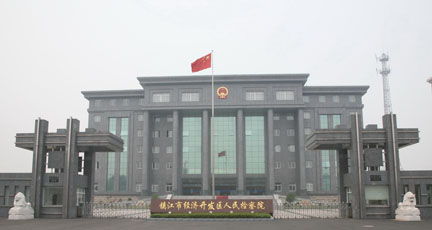OSINT Applications For Supply Chain Security In GCC Industries
In the rapidly evolving landscape of global trade, supply chain security has become a critical concern for industries in the Gulf Cooperation Council (GCC) region. Open-Source Intelligence (OSINT), which involves gathering and analyzing publicly available data, offers innovative solutions to enhance security and resilience in supply chains. This article explores how OSINT can be applied to safeguard GCC industries, focusing on its practical uses, benefits, and potential challenges.
Understanding OSINT in the GCC Context
OSINT refers to the collection and analysis of data from publicly accessible sources such as social media, news outlets, government reports, and satellite imagery. In the GCC—a region comprising Saudi Arabia, UAE, Qatar, Kuwait, Bahrain, and Oman—industries like oil and gas, logistics, and manufacturing dominate the economy. These sectors rely heavily on complex supply chains that span multiple countries, making them vulnerable to disruptions, fraud, and security threats. OSINT provides a cost-effective and proactive approach to monitor and mitigate these risks.
Applications of OSINT in Supply Chain Security
OSINT can be leveraged in several ways to strengthen supply chain security in GCC industries:
- Risk Assessment and Threat Monitoring: By analyzing real-time data from social media and news platforms, companies can identify potential risks such as political instability, labor strikes, or natural disasters that could disrupt supply chains. For instance, monitoring regional weather patterns via satellite imagery can help predict delays in shipping routes across the Arabian Gulf.
- Supplier Verification: OSINT tools can be used to investigate suppliers’ credibility by cross-referencing public records, financial reports, and online reviews. This is particularly valuable in the GCC, where industries often deal with international vendors and need to ensure compliance with local regulations.
- Counterfeit Detection: The GCC’s luxury goods and pharmaceutical sectors face challenges from counterfeit products. OSINT can track online marketplaces and forums to detect suspicious activities, helping companies protect their supply chains from fraudulent goods.
- Geopolitical Insights: With the GCC’s strategic location, geopolitical tensions can impact trade routes. OSINT provides insights into regional developments, enabling businesses to adjust logistics plans proactively.
Benefits of OSINT for GCC Industries
The adoption of OSINT offers numerous advantages for GCC supply chains. Firstly, it is cost-efficient, relying on freely available data rather than expensive proprietary systems. Secondly, it enhances decision-making by providing real-time, actionable intelligence. For example, a logistics firm in Dubai could use OSINT to reroute shipments based on sudden port closures reported online. Lastly, OSINT fosters collaboration between public and private sectors, as governments and businesses can share insights to improve regional security.
Challenges and Considerations
Despite its potential, OSINT implementation in the GCC faces challenges. The sheer volume of data can overwhelm analysts without proper tools or training. Additionally, the reliability of open-source information varies, requiring careful validation to avoid misinformation. Privacy regulations and cultural sensitivities in the GCC also necessitate a balanced approach to data collection. Investing in advanced analytics and skilled personnel can help overcome these hurdles.
In conclusion, OSINT presents a transformative opportunity for supply chain security in GCC industries. By harnessing publicly available data, businesses can proactively address risks, enhance operational efficiency, and maintain a competitive edge in a dynamic global market. As the region continues to grow as a trade hub, integrating OSINT into supply chain strategies will be key to ensuring resilience and security.
